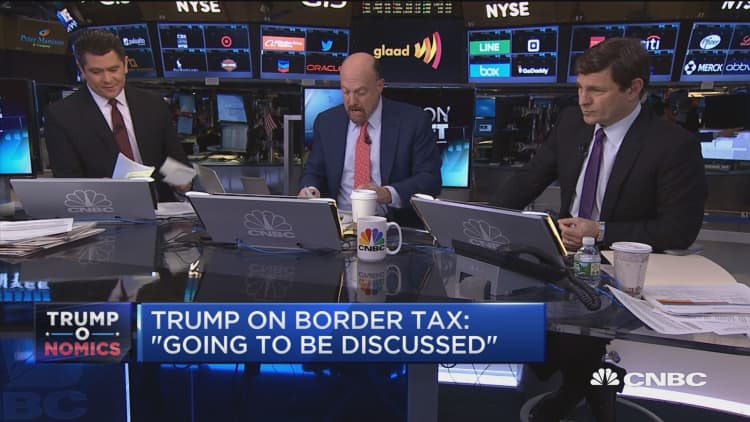
Target shares fell nearly 6 percent on Wednesday, as a massive marketing push and spike in digital sales weren't enough to make up for fewer shoppers visiting its stores.
Despite ramping up the amount of advertisements that spoke to value; extending its free shipping window an additional week; and bringing in nearly 2,000 exclusive toys, the big-box retailer on Wednesday said that comparable sales declined 1.3 percent in November and December.
Electronics and food continued to struggle, while sales in its so-called signature categories — baby, style, kids and wellness — grew nearly 3 points faster than the company average. Target's rapid 30 percent digital growth significantly outpaced the performance at its stores, where transactions dropped 1.7 percent. Transactions are often used as a gauge for traffic.
If Target's in-store transactions continue to shrink in January, the holiday quarter will be the third-straight period in which its traffic has fallen. Wal-Mart, which hasn't provided details about its holiday results, has grown traffic in its U.S. stores for eight consecutive quarters.
Target's results came as somewhat of a surprise, after the retailer in November raised its fourth-quarter sales and full-year earnings forecasts. It had also indicated it was off to a strong start for the period, including a record day for its website on Thanksgiving. The company on Wednesday lowered its comparable sales and earnings expectations.
Target shares were last trading at $66.85.
"While we were pleased with Black Friday sales, December digital sales growth of more than 40 percent and continued strength in our signature categories, these results were offset by early season sales softness and disappointing traffic and sales trends in our stores," said Brian Cornell, chairman and CEO of Target.
Target joins a long list of retailers that have reported disappointing holiday results, even as the industry grew sales by 4 percent, according to the National Retail Federation. It also joins the likes of Urban Outfitters, saying the shift in spending toward its website dented its margins. Target offered free shipping on all orders, no matter the value, for more than two months. Its margins were also hurt by heavy promotions.
"Weakness at retail offset benefits from new product introductions and Target's own strong growth in e-commerce," John Zolidis, director of equity research at The Buckingham Research Group. "We are taking a much more conservative view on future results and now believe it's reasonable to start with the assumption that Target may never generate a positive annual comp again, or at least not before the e-commerce channel matures."
Target leaned heavily into the holiday season, particularly with its marketing. According to a recent report by MediaRadar, Target was the only company among eight major retailers to increase its advertising spending across print, television and online. That includes a 54 percent increase on TV, including an eight-minute mini-musical called "The Toycracker" that debuted in December.
Target now expects to earn between $1.45 and $1.55 a share in the fourth quarter, compared with its prior forecast of $1.55 to $1.75. It anticipates comparable sales will decline between 1 percent and 1.5 percent, compared with its previous expectation for a 1 percent decline to a 1 percent increase.
For the full year, Target expects to report adjusted earnings of $5 to $5.10 a share, compared with its prior $5.10 to $5.30 a share. The retailer will release its full results Feb. 28, and hold a meeting with investors that morning.


